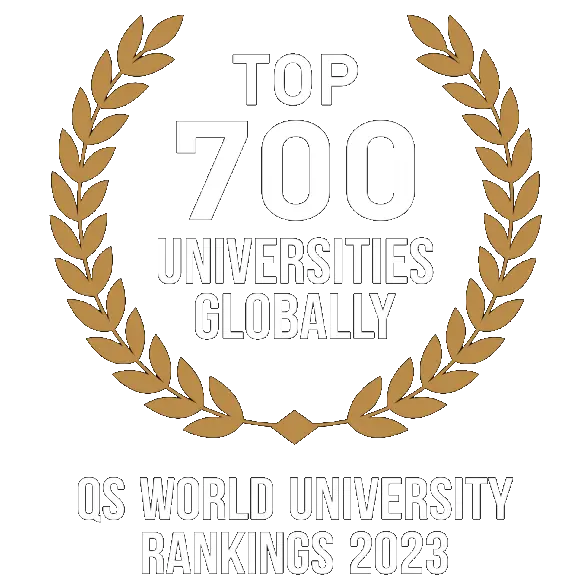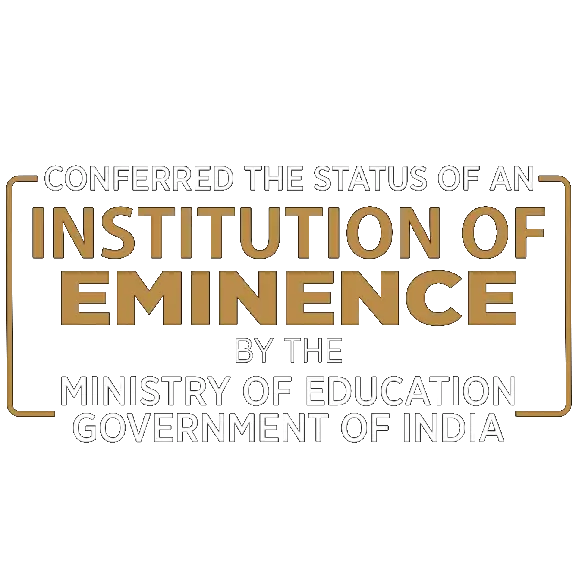Founded in 2013, the Jindal School of Liberal Arts and Humanities (JSLH) is the fifth school of O. P. Jindal Global University and is situated at the heart of its dynamic intellectual community. JSLH offers an interdisciplinary liberal arts course of global standard, preparing young adults to become informed citizens of the world, who possess the creativity and multiple perspectives needed to solve complex problems.
The JSLH student is exposed to fundamental ideas of various humanities, social sciences, and visual arts in an integrated manner.
Find More
Our curriculum includes discussions, debate, and hands‐on activities, breaking out of the classroom learning mode.
Find More
A student’s imagination should not be limited by that of the faculties. A student can ’design’ their major in consultation with two faculty directors.
Find MoreOur small class sizes provide an atmosphere that encourages individual focus and active participation.
JSLH has over 40 faculty members who are actively involved in research in various fields ready to guide students towards cutting edge scholarship.
Find MoreWe have an extremely strong network of partner universities across the globe. Students can go for short summer visits, or even a full semester abroad.
Find MoreStudents
University Faculty & Staff
Collaborations with International Universities
Alumni Network
Publications


















In a world that increasingly values adaptability, creativity, and critical thinking, liberal arts and humanities stand out as fields that nurture these vital skills. Rather than focusing on narrow technical knowledge, liberal arts education encourages interdisciplinary learning, reflective thinking, and deep engagement with human culture, history, language, and society. At the Jindal School of Liberal Arts and Humanities, students explore diverse subjects like literature, fine arts, politics, economics, and philosophy through a global lens. This academic foundation not only promotes personal growth but also prepares individuals for dynamic careers in education, public policy, research, communication, and the creative industries.
Humanities refers to the academic disciplines that study human culture, expression, and experience. These include literature, philosophy, history, art, music, religion, and languages. Humanities help us understand how people have interpreted the world and their place in it across different times and cultures. The goal is not only to explore historical facts or artistic achievements but also to question ideas, values, and beliefs. Today, research in the humanities is also supported by advanced research methods and writing skill development programmes, enabling deeper analysis of texts, cultures, and ethical dilemmas.
Graduates in the humanities have access to a broad range of careers. Common fields include education, publishing, cultural institutions, media, public relations, diplomacy, research, and civil services. With the growing importance of communication and ethical analysis in business and public life, there is increasing demand for humanities-trained professionals in areas like policy analysis, journalism, human resources, community engagement, and corporate social responsibility.
Those with skills in advanced writing and research in social science may also work in think tanks, NGOs, and international organisations. The job market for humanities graduates values creativity, ethical reasoning, and the ability to think across disciplines.
The scope of liberal arts in India is expanding rapidly. As industries and institutions begin to value interdisciplinary knowledge, the demand for liberal arts graduates is rising. Fields like public policy, media, consulting, education, and entrepreneurship welcome candidates who can think critically and communicate effectively.
Moreover, with the rise of liberal arts universities in India, students now have more options to study in well-structured and globally aligned programmes. The focus on research in humanities, digital humanities, and community engagement also prepares students for international postgraduate studies or academic careers.
Graduates from the best liberal arts colleges in India are known for their adaptability, leadership, and intellectual curiosity—traits sought after in the dynamic job market.
The term “liberal arts” originates from classical antiquity, referring to the education necessary for a free person to participate in civic life. In the modern context, it represents a holistic, multidisciplinary approach to learning that balances breadth and depth.
Rather than training students for a single job, liberal arts education nurtures critical thinking, ethical reasoning, problem-solving, communication, and lifelong learning. The liberal arts definition today encompasses not just the humanities but also social and natural sciences, technology, and the arts. It allows students to ask meaningful questions and develop a well-rounded understanding of the world.
While the humanities and arts often overlap, there are distinct differences:
A bachelor of fine arts (BFA) is more practice-based, while a humanities degree is more theory-driven. However, both encourage creativity, and many bachelor's in fine arts courses now incorporate elements of cultural studies, history, and media theory.
Liberal arts subjects typically include a wide range of disciplines across the humanities, social sciences, and natural sciences. Students may study philosophy, literature, history, sociology, psychology, political science, economics, art, music, and science.
In modern liberal arts colleges, students can often create their own pathways, combining seemingly unrelated disciplines to explore real-world issues from multiple perspectives. This includes working with advanced tools in social science, quantitative reasoning, and creative expression.
A bachelor of liberal arts encourages students to connect ideas, innovate solutions, and communicate clearly—skills that are invaluable across all professions.
Liberal arts subjects span multiple domains:
Courses also include advanced research methods, ethics, logic, writing skill development programmes, and communication. This multidisciplinary exposure helps students build skills that are relevant in multiple industries.
Leading liberal arts colleges in India now offer integrated curricula that encourage both intellectual depth and interdisciplinary learning.
A career in fine arts offers creative fulfilment and diverse professional opportunities. Artists can work in visual arts, advertising, animation, design, gallery curation, or film. Some pursue independent practice while others work in organisations or academia.
The Bachelor in Fine Arts (BFA) degree equips students with technical skills and conceptual frameworks. This includes exposure to fine arts course details such as studio practice, art history, media arts, and design thinking.
With the increasing prominence of digital platforms and global art markets, BFA job opportunities have diversified. Today’s artists are also using their practice in activism, education, and storytelling.
For students passionate about expression and visual culture, fine arts as a career is both viable and rewarding.
Liberal arts and humanities are not just academic pathways—they are frameworks for understanding the world. In a changing global environment, these disciplines prepare students to question deeply, write thoughtfully, and act responsibly. Whether one chooses to pursue a Bachelor of liberal arts, a Bachelor of Fine Arts, or a PG Diploma in Research and Innovation, the skills gained—critical thinking, empathy, and adaptability—are essential for personal and professional success.
As the demand grows for professionals who can bridge knowledge with insight, communication with impact, and creativity with strategy, the role of liberal arts education in shaping future leaders is more important than ever.